#but in terms of dialogue. cinematography. soundtrack???
Explore tagged Tumblr posts
Text
going to eat peter hyams alive just watched 2010
#i. you. you cant.#i expected it to be not as good as 2001 and it was so much worse than i thought it would be#like yeah. kubrick burned most of the og material bc he was kinky like that. and they did a rly good job recreating it#and adding new things#but in terms of dialogue. cinematography. soundtrack???#genuinely. how did you fuck it up THAT bad.#i went in with a low bar and they dug to the center of the earth with it#at least we got reqium and thus spoke zarathustra. dunno what i wouldve done without them#you could have TRIED to make more than like. a singular symbolic shot#kubrick was an abusive dickhead but by god. he made a good fucking movie#he burned things in fear that anyone making sequels would fuck it up. and then he let you make a sequel. and you fucked it up.#like it didn't have to be great! for hyams to have had 4+ major roles in the creating of it he was prbly already taking on a lot of stress#but jesus fucking christ the dialogue and the shots sounds and looks like EVERY OTHER FUCKING ACTION MOVIE#YOU CANT MAKE A SEQUEL IF YOU ARENT GOING TO AT LEAST TRY TO FUCKING IMITATE THE ORIGINAL#like you could have TRIED to imitate it and not done a great job and i would have been so much happier!! you couldve tried!!!!#for the love of god could you have at least given me a correct shot of hal!!!#ive read the wikis for the sequel novels looking forward to reading 2010#bc ik they got the plot right. but. that was pretty much the one thing they got right.#also shoutout to keir dullea for somehow looking the same 16 years later. how the helld you do that#hold on rereading the wiki. wdym some of the characters were whitewashed. wdym max and curnow were bisexual and dated.#that. that better be true istg#ANYWAY.#i have to stop. otherwise i'll keep going.
0 notes
Text
Exploring the Enchanting World of "Goblin" (Guardian: The Lonely and Great God)
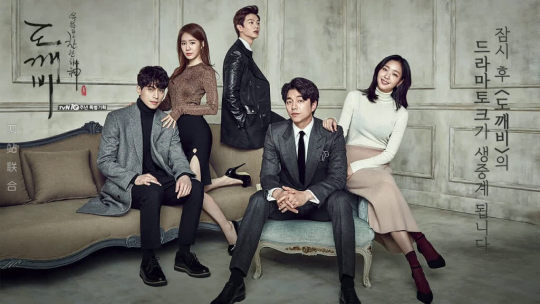
youtube
Goblin, officially known as "Guardian: The Lonely and Great God", is a South Korean television drama that has captured the hearts of millions since its debut in December 2016. Created by Kim Eun-sook and directed by Lee Eung-bok, this fantasy romance series has left an indelible mark on the world of K-drama with its unique storyline, captivating characters, and stunning cinematography.
In terms of genre, "Goblin" falls into several categories, including fantasy, romance, melodrama, and supernatural. It blends elements of romance and fantasy with a touch of humor and poignant storytelling.
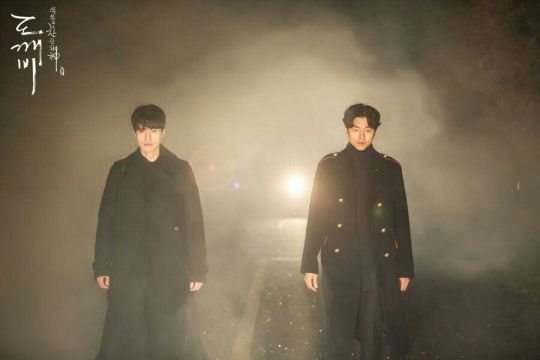
Plot Overview
The series follows the story of Kim Shin, played by the charismatic Gong Yoo, a 939-year-old goblin who has lived an immortal life. Kim Shin was once an unbeatable general in Goryeo's military who was betrayed and killed by a jealous young king. Cursed with immortality, he lives through the centuries awaiting a human bride who can pull out the sword embedded in his chest, ending his eternal life. Enter Ji Eun-tak, portrayed by the talented Kim Go-eun, a high school student with a tragic past who has the rare ability to see ghosts. Eun-tak is revealed to be the "Goblin's bride," and her presence brings new meaning to Shin's existence. Their lives intertwine in a fateful, romantic, and often humorous journey that transcends time and destiny.
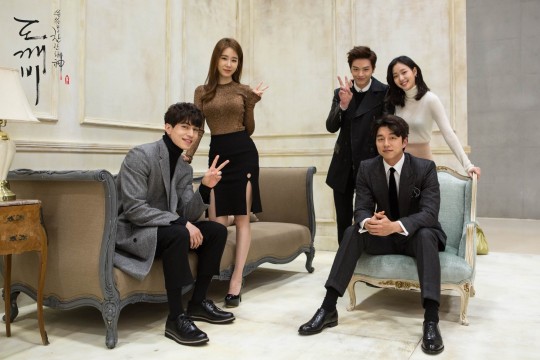
Key Characters and Their Dynamics
1. Kim Shin (Gong Yoo): As the titular Goblin, Gong Yoo delivers a masterful performance, embodying both the gravitas of an ancient warrior and the charm of a man experiencing life anew. His character is both tragic and endearing, seeking solace and redemption through love.
2. Ji Eun-tak (Kim Go-eun): Kim Go-eun's portrayal of Eun-tak is heartfelt and genuine. Despite her hardships, Eun-tak remains optimistic and resilient. Her relationship with Kim Shin evolves from a chance encounter to a profound love story that defies the bounds of time.
3. Grim Reaper (Lee Dong-wook): The Grim Reaper, whose true identity and past are revealed gradually, adds depth to the narrative. His friendship with Kim Shin and his own love story with Sunny, Eun-tak’s boss, provide parallel plots that enrich the series.
4. Sunny (Yoo In-na): Sunny, a quirky and beautiful restaurant owner, becomes entwined in the supernatural world due to her connection with the Grim Reaper. Her character adds warmth and complexity to the storyline.
Themes and Visuals
"Goblin" is a rich tapestry of themes such as love, redemption, and the human condition. The drama explores existential questions about life and death, fate, and the pursuit of happiness. The use of poetic dialogue and philosophical musings sets it apart from conventional dramas.
Visually, "Goblin" is a feast for the eyes. The series is renowned for its breathtaking cinematography, blending the beauty of natural landscapes with intricate urban settings. The visual effects, particularly the scenes involving the goblin's supernatural powers, are both seamless and mesmerizing.
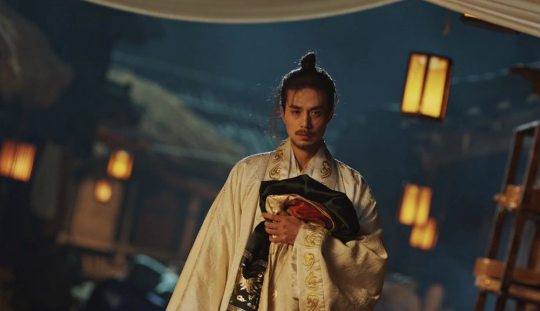
Cultural Impact and Legacy
"Goblin" has become a cultural phenomenon, not just in South Korea but globally. Its unique blend of romance, fantasy, and humor has struck a chord with audiences. The drama's OST (Original Soundtrack) also gained massive popularity, with songs like "Stay With Me" by Chanyeol and Punch becoming instant hits. The chemistry between Gong Yoo and Kim Go-eun is palpable, and their performances have been widely praised. The series has won numerous awards and continues to be a favorite among K-drama enthusiasts.
youtube
The soundtrack of the Korean drama series "Goblin" (also known as "Guardian: The Lonely and Great God"), which starred Gong Yoo and Kim Go Eun, is widely celebrated and has significantly contributed to the show's success. The OST (original soundtrack) is known for its emotional depth, beautiful melodies, and poignant lyrics, complementing the series' themes of love, fate, and immortality. Here are some notable songs from the soundtrack:
"Stay With Me" by Chanyeol and Punch:
This song is arguably the most popular track from the series. Its haunting melody and emotional lyrics capture the essence of the relationship between the main characters. The combination of Chanyeol's deep voice and Punch's ethereal vocals creates a memorable and moving piece.
"Beautiful" by Crush:
"Beautiful" is another standout track that highlights the poignant moments of the drama. Its simple yet powerful melody and heartfelt lyrics make it a perfect backdrop for the tender and bittersweet scenes between the characters.
"Hush" by Lasse Lindh:
This song adds a touch of indie charm to the soundtrack. Its soothing tune and delicate vocals enhance the emotional atmosphere of the series, particularly in scenes that explore the quieter, more introspective moments of the characters.
"I Will Go to You Like the First Snow" by Ailee:
Ailee's powerful and emotive voice shines in this song, which became a massive hit. The lyrics express the longing and enduring love that are central themes in "Goblin." This track often accompanies some of the most dramatic and emotional scenes in the series.
"Round and Round" by Heize and Han Soo Ji:
This song features a mystical and haunting quality that perfectly matches the supernatural elements of "Goblin." Its atmospheric sound and evocative lyrics make it a memorable part of the OST.
"Who Are You" by Sam Kim:
This track has a soulful and reflective vibe, adding depth to the soundtrack. Sam Kim's smooth vocals and the song's introspective lyrics resonate with the character's journeys and their search for identity and purpose.
The "Goblin" OST is renowned not only for its musical quality but also for how well it integrates with the storyline, enhancing the viewing experience. Each song is carefully selected to reflect the emotions and themes of the drama, making the soundtrack a beloved aspect of the series for fans.
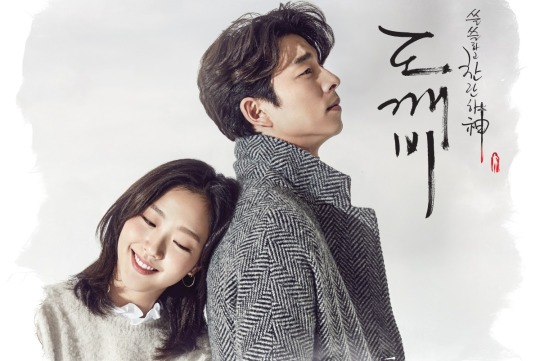
Goblin" is more than just a television series; it's an experience that lingers long after the final episode. Its compelling narrative, unforgettable characters, and stunning visuals make it a must-watch. Whether you're a seasoned K-drama fan or new to the genre, "Goblin" offers a magical journey that is both heart-wrenching and heartwarming.
Honest Comment: When I first saw this series I was like "hmm not my genre" because of the look of the series but when I watched it I was amaze because of the act of the actors especially Kim Go Eun she is amazing, she executes her character very well. I love the cinematic of the series you can feel the vibe , the emotions and everything you can feel about it. I love the plot of the series. There is one episode that made me cry like a baby I can feel the emotions of Kim Go Eun character her feeling towards to her partner and the plot with the Grim Reaper he is one of my favorite the story, the emotions, and the facial expression it is like he is talking to me, but I will not forget Gong Yoo's character he did his character so well that no one could replace it. This series makes my heart happy and sad especially when I hear their songs it can touch you heart. Big thumbs up for this Series. This will always be my top tier korean drama series.
10 notes
·
View notes
Text
Umbrellas of Cherbourg: A timelessly romantic picture with the most heartbreakingly real plot
The Umbrellas of Cherbourg, is a 1964 French jazz operatic musical extraordinaire directed by Jacques Demy and stars Catherine Deneuve as the young 16 year-old Genevieve, daughter of a struggling yet stylish madame shop owner of The Umbrellas of Cherbourg. Her leading man was the dashing Nino Castelnuovo who played the role of Guy, a modest good looking mechanic who not long enough got drafted into the Algerian War. The separation of our young lovers pretty much served as the core, climax, and driver of this very simple tale yet touching tale. Romantic in the begining, funny and cliche in the middle, and devastatingly tragic in the end, Umbrellas of Cherbourg more than anything is a close to a perfect study of the dichotomy between romanticism and realism. Centered on a whirlwind romance forced into separation, heartbreak, and finding and coming into terms with closure, Umbrellas of course gave us a cold, final encounter between the main characters. Ah! But we know that this only happens in the movies! In real life though, one rarely finds the circumstance or luck to stumble upon people they had let go. Still, it is a big slap on the face, because regardless, achieving closure is something that is sought alone through one’s own terms. Ask our Mon Amor Guy about that! So there’s an underlying depth within the film’s concept. I wouldn’t drag the dialogues either as they were fully sung. Despite some people criticizing its repetitiveness, the music birthed some unforgettable melodies. And some elements of Jazz did you say? I was sold right away when I briefly caught bits of the soundtrack and the entirety of the picture’s trailer. And let’s talk about visuals! The set design, the mod outfits, and the color play- it’s something that we are seeing a resurgence of only just now with films such as La La Land and Barbie. Personally, the acting from Castelnuovo is the most memorable. Whereas Denueve’s was as pale as her character, it still is effective, her beauty, sweetness, and naivety. I am happy that I chose the stylistic Umbrellas of Cherbourg as my gateway to French Cinema. Will certainly give this a rewatch in a few years.
Plot/Screenplay - 9.5/10
Cinematography - 9.5/10
Acting - 9/10
Impact - 9.75/10
Overall Score- 9.4375/10





0 notes
Text
Digital Skills with Kalina Pulit
Concept + Storyboarding
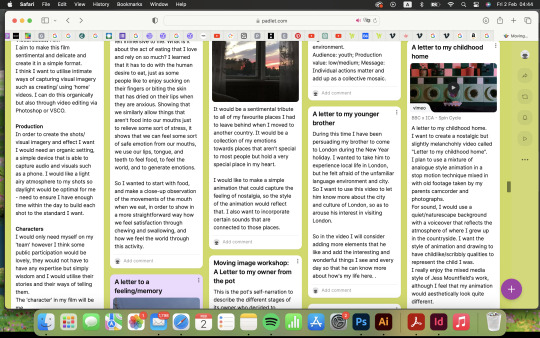
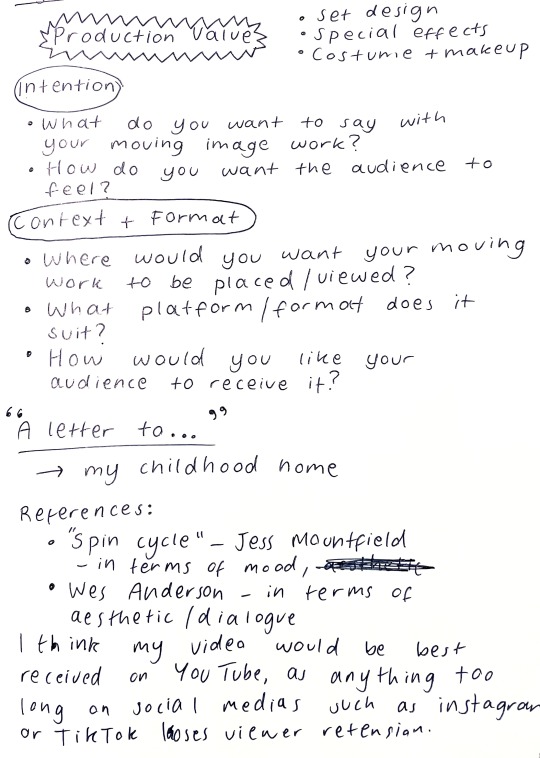
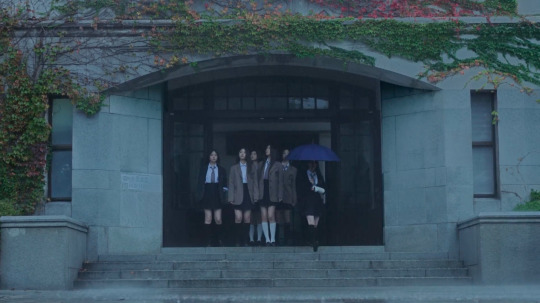

NewJeans - Ditto
Wes Anderson - The French Dispatch
During Kalina’s lessons, we considered context and format and how the placement of our work affects the audiences perspective on it. For the “A letter to...” brief I considered writing to my childhood home using camcorder footage and nostaglic imagery and music. Above are the visual references I considered for the potential production of this piece. I planned to use a mix media of film, and child-like drawn animation.
Pre production
This class talked us through all elements of pre production and planning.
Staff roles in Production:
Writer (sometimes also a Director)
Director (sometimes also a Writer)
Production Company
Executive Producer
Producer
Production Assistant (PA)
Director of Photography / Cinematographer
Art Director, Set Designer, Prop Stylist
Costume Designer / Stylist
Hair and Make Up Artist, Nail Technician, Prosthetics Artist, Special Effects
Planning involved in Pre-production:
Collating references
Creating a budget
Making a schedule
Casting – scouting and booking talent
Legal docus - any permits required
Testing – camera, costume fitting, make up, audio
Team brief
Rehearsals
Contracts
"A video treatment is a document that presents your idea for a music video, short film, or video project in a way that's easy to understand, visualize, and sell. A good treatment is a roadmap that outlines your vision, showcases your creativity, and demonstrates your ability to execute the project."
Video treatments contains:
Inspiration + refs
Concept
Storyboard
Character description
Cinematography
Location, set design
Casting, performance direction
Costume, hair and make up
Plot diagram + narrative arc:
Post production and Editing
Case study Nike - 'You Can’t Stop Us’ campaign.
youtube
voice over
storyline
cross cutting
colour grading + colour correction
building audio to build tension
Post production roles:
Editor
Post Producer
Animator
Colourist
VFX Artist
Motion Graphics Designer, Graphic Designer, Titles Designer
Sound Editor
Composer, Sound Designer, Foley Artist
Sound Mix Engineer
Types of editing such as:
Cross Cutting
L Cut
J Cut

Solange - 'Crane in the Sky'
We were asked to consider for our own work:
Editing style – pace, overlays, cuts or transitions
Colour grade/ colour correcting
Animation/ VFX
Motion graphics
Sound design including soundtrack, dialogue and foley sounds.
My response to the task:
I want my film to take a slower pace, as I have decided it would be targeted to youtube. I think the slow place is necessary in order to create the relaxed nostalgic vibe. I want there to be a very gentle monologue, of myself reading the letter over the top of the film.
In terms of colour grading, I was thinking of using both a combination of the Wes Anderson bright and vibrant grading and the NewJeans 'Ditto' nostaglic darker and fuzzier aesthetic. I'm not certain if these will work together well but I want to use them in contrast to show the past (bright) and the present (dark).
Animated drawings or scribbles over the top of the footage to add movement to more still shots.
I am debating whether to add subtitles onto the video or not.
I will do a voiceover using a written script and then create a soundscape by filming general outdoor sounds. I don't want to use any music but in areas of film that have actions such as footsteps, I want there to be gentle footsteps in the background.
I feel like I have learnt a lot of new terminology from Kalina's lessons and it has given me an insight into filmmaking. Overall, I wish I had had more time to see this project through to the end, as the concept planning was very enjoyable. Film is definitley a skill I would like to develop and I will consider it for the future.
1 note
·
View note
Text
Film Review
The conventions of a film review include a title and brief summary of the film so that readers understand which film is being addressed and have a somewhat of an understanding as to what the film is about. The second convention is an analysis into character, writing, dialogue, plot, direction, cinematography, soundtrack and editing, because those are all key features that can elevate a film or drag it through the dirt. A film review must cover every aspect of the film. The next convection is the critic and overview where the reviewer must express their opinions on the film overall and voice any and all critics they have, it also can act as a summary of whether they thought this movie was good. The last critic is the rating, a film review must provide a rating to the audience to know what the overall consensus in terms of the film’s quality was.

Something Borrowed (2011)
Director: Luke Greenfield Writers: Jennie Snyder Urman and Emily Giffin
Something Borrowed is a run of the mill early 2010s movie that encourages its viewer to live life to the fullest, and teaches them that cheating on your fiancée with her best friend is okay, as long as your fiancée is as bad a person as you are. The movie is about a lawyer in New York named Rachel who is a pushover and a perpetual victim to her attention-seeking best friend Darcy. Darcy is engaged to Dex (with Rachel as the maid of honor, naturally) but after Darcy gets drunk at Rachel’s birthday and has to leave, both Dex and Rachel stay behind to look for Darcy's lost Chanel bag. The two of them get drunk and end up sleeping together. The rest of the movie is spent trying to justify their cheating despite the fact that Rachel is Darcy's "bestfriend" and Dex is her fiance. There is a character in the movie who act as a voice of reason, Ethan, who points out that if Dex really did love Rachel then he would break off the engagement to be with her.
The main characters are hard to root for in the beginning because all of them suck for their own reasons, but this is later redeemed through showing the complexity of the characters and ends up making them feel more like real people who can make mistakes rather than characters in a corny romcom. Even the “antagonist” of the movie, Darcy, is shown to be more than simply a self-absorbed individual. There are points where we understand why Darcy and Rachel are friends despite how different they are and how toxic their relationship can seem at times. The script managed to make me want a happy ending for all of the characters even though I thought that they were all bad people making dumb decisions. The ending did all the character’s justice because they all got what they truly wanted, which rang true to the theme of doing what you want and not just what is expected of you.
The cinematography and acting aren’t anything to write home about, it’s what one would expect from an early 2010s romcom. Though there was one moment that stuck with me because of how genuine it felt; in the midst of the drama, Darcy and Rachel have a sleepover and duet a dance which they choreographed when they were kids, and still execute seamlessly as adults. We, the audience, feel the strength of their relationship. This adds stakes because if Darcy were to find out about the affair, then that relationship would be in jeopardy.
Overall I would watch the movie again. It's no cinematic masterpiece and I still think that it’s attempt to make cheating redeemable as long as you “truly love each other” is questionable but as a late-night low-effort watch this movie would be a solid 7/10.
0 notes
Text
I know I already commented on your post but I wanted to go more in depth here, mostly because NBC's Hannibal is a show I find myself returning to frequently. Apologies in advance for the long reply post!!!
Something about it draws you in and won't let you go. I think it has to do with a combination of factors, but one of them is definitely the incredibly artful cinematography, dark indulgent aesthetics, and excellent sound design and soundtrack. In addition I would say the characters are generally well written and the dialogue is on the verge of poetic prose at times. The cast and acting is incredible in general and they all do a good job at selling this ambitious series.
If you are a fan of surreal nightmare-like horror, body horror, visual gore, psychological horror, police procedural elements, thriller and action elements then this is the show for you. When there is not blood or guts the tension more than makes up for it's absence.
Personally speaking, I have always found elements of Will's character to be relatable which is another reason I like rewatching the show. If you are a fan of "corruption arcs" or good characters being pulled in questionable and immoral directions this show might be for you.
The main focus of the story is on the development of the relationship between Will Graham and Hannibal Lecter. This is a toxic and unhealthy relationship (no matter the interpretation of its romantic/platonic connotations) it's meant to be obsessive and unhealthy. That being said it's an excellent character study and an entertaining saga to see unfold.
I want to also add some negatives/things to be aware of, but I'll keep them below here as they will have vague/minor spoilers
Not all of the mystery and murders make complete logical sense. They are not meant to, but it is also due to loose writing. If you care about logic or stuff making sense in this regard, this element might break it for you in terms of immersion. It's meant to be more artful than realistic in that regard.
This show contains just about every potential content warning in the book. I highly recommend looking into the website doesthedogdie for all of the specific warnings. It should also have warnings for specific episodes. Keep yourself safe first! Know your limits and skip episodes if needed. It's a show about an unsafe relationship and murders, lots of terrible things happen. I used to know a blog that had specific warnings for episodes and episode descriptions, but I've lost track of it at this point.
The show did run from 2013-2015 I believe, so it's a bit out of date on a lot of fronts and it's writing is limited in some aspects. Women are generally well written, but it becomes obvious at times that the writers were mostly men. While queerness is an inherent part of the show, the women who are sapphic/queer are not allowed to voice it specifically and are not given the time and focus for their storylines to be explored. POC characters are not given as much screen time, as much story focus, and one prominent character of color dies off screen without much focus or fanfare and is barely mentioned ever again. It's upsetting and uncomfortable, and I would understand if these elements were enough reason to not watch.
I also want to mention that this show does deal a lot with law enforcement, specifically FBI, as well as the prison system, as well as psychiatric treatment within said system. While I do know that the depiction is somewhat fantastical and not based in reality, I do want to acknowledge the copaganda at play here. Usually the FBI are portrayed as being correct, cool, and even competent at solving crimes. THIS IS NOT TRUE IN REAL LIFE. While the show does highlight the darker and more corrupt aspects of law enforcement I would not call it neutral on law enforcement or the American law system. I would also say that the writers definitely did not do much research on the history of said systems or their inherent roots in racism and white supremacy. It shows. It's also understandable to not watch for this reason.
I tried to write some things I would have liked to see before diving in. I can also elaborate on any of these elements in the replies if need be. I'm sure I missed other things as well lol. Hope this helps!
Somebody give me a reason to watch Hannibal GO
21 notes
·
View notes
Text
*years later* thanks so much for the tag @lovelybeautifulpretty!! cant recall if i warned u before but i tend to go buckwild with these, sorry and your welcome :D
Here are top 10 fav films and surprise surprise, im just a hot mess of eclectic tastes 🤷♀️ in no particular order:

Robocop
This 80s masterpiece is a smart political satire/social commentary disguised as a comic book/action revenge movie that interweaves hilarious dark humor, ultraviolence and science fiction in a simple yet seamless plot. It will honestly SHOCK you just how much it has to say on American evolutions in capitalism, media influence, desensitization to violence, gentrification, and our perception of heroes, each in service of a greater conversation about identity and culture.

Atonement
I consider this film the pinnacle of an angsty/doomed romance executed perfectly on-screen: the performances, the cinematography, the music, EVERYTHING!! Funny story, me & the girlfriends went to see this in theaters expecting a typical period romance; left completely snot-dripping, bawling our eyes out. I shit you not, i felt the utter devastation from this film for WEEKS
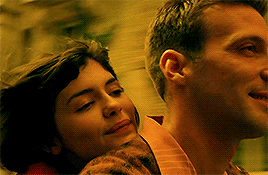
Amelie
If there was a film to define the term "whimsy" then this is it!! Its so creatively rich, with such a fun and sweet art style in the characters, the way its filmed, the music, the romance- it'll make your heart ache for days.
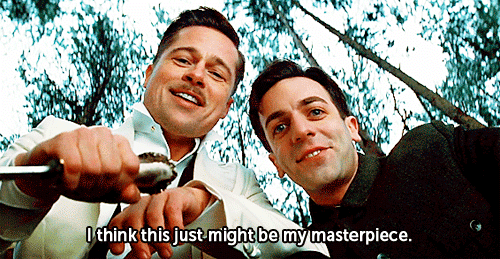
Inglorious Basterds
I'm a big whore for Tarantino ever since Reservoir Dogs, but I consider film his ABSOLUTE masterpiece. The comedically distinct characters, the sharpness of dialogue, how he builds up the tension of scenes to the point of explosion with just a simple conversation- *CHEFS KISS*
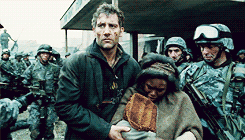
Children of Men
This dystopian sci fi drama was made in 2005 but with all the social commentary woven into the background of the story, it is eerily topical in today's tumultuous political & social climate (which is very telling about us as a society I suppose). The director Alfonso Cuaron is a master at "show don't tell" filmmaking and it SHOWS. Also the tracking long shots in this film are something to witnessed, beheld even. Masterpiece.

Bridget Jones' Diary
My absolute FAV romantic comedy, i totally relate to this bumbling, epic disaster of a woman, even more so now that i'm 30+ like her. Fun fact, the plot is heavily inspired by Pride & Prejudice which is probably why i love it so much. Also Colin Firth 🥵 (which leads me to another fun fact- he was cast as Mark Darcy mainly due to the author's crush on him from his portrayal of Mr. Darcy in the 1996 BBC miniseries which put him on the map, and rightly so. I know the film adaption is super popular, but any P&P fan NEEDS to watch this version, so so good)
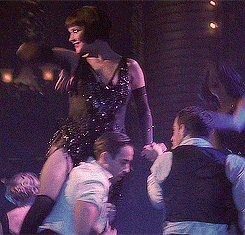
Chicago
This musical ruined all theater musicals for me forever- the film adaptation is THAT good!!! The spectacle, the numbers, the PERFORMANCES- Catherine Zeta Jones slayed as Velma Kelly (also my ovaries), i love it so much that i watched it 3 times back to back on a flight i honestly couldnt get enough lol
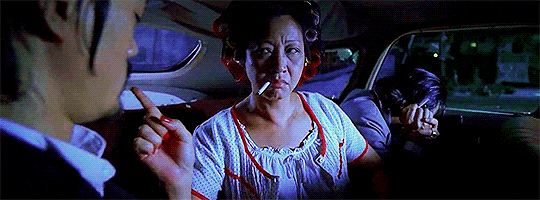
Kung Fu Hustle
This film is Stephen Chow's magnum opus- an action comedy that blends kung-fu and all sorts of historical chinese references and homages of the directors favorite films, you can tell the passion and the fun that went into making this film and it really REALLY shows. I consider this a perfect execution of what a live-action anime could be, this film is an absolute blast and classic
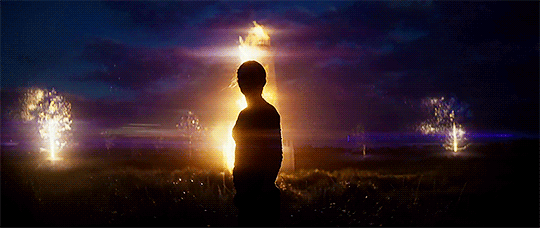
Annihilation
I've got a bit of a cosmic/existential horror kink (where a form of media makes you question the world/life as we know it or triggers an existential crisis) and this film gets it RIGHT. It's a philosophical sci-fi thriller but is so much more with its themes of pain and identity, exploration of humanity's disposition for self destruction but also its unsettling visuals and soundtrack. Funny story, the sound design is so alien/unsettling that it spooked my cat from her nap and got her staring at the screen with wide eyes and an arched back trying to figure out what the eff was going on (me as well).
Also love how its an all female cast but its never mentioned in-film; just a bunch of capable women going to take care of business (i didnt even notice until my 2nd watch)- im a fan of this approach as it in effect "normalizes" this scenario whereas calling it out as if its special just highlights how it's an exception...anyway, its a horrifically beautiful film.

Sicario
Denis Villeneuve can do no wrong in my eyes (nor cinematographer Roger Deakins), a beautifully shot thriller that serves as a social commentary on how laws are meant to be broken, lines are drawn and then erased when convenient, as long as it serves a so-called greater purpose, that keeping a moral code is a futile effort. Brilliant performed and written, nuanced characters, glorious cinematography and a killer soundtrack (RIP Johan Johansson), A+++++
alright sorry for the long rambling post, cant help myself! Tagging a bunch a folks that seem alive per my notifs, no pressure of course!!!
@writebecauseyoucannotbreathe @nuri148 @your-lavender-dreams @warbarbie @levi4mikasa @onigiri-dorkk @helena-thessaloniki @misplacedgamer @lovely-apparitions @ally147writes @stalactice @vero-icon @mylienated @hellhorsedotjpg @magicalanchordestiny
#thanks for the tag!!#tag game#robocop#atonement#amelie#inglorious basterds#children of men#bridget jones diary#chicago film#kung fu hustle#annihilation#sicario
75 notes
·
View notes
Text
currently thinking about the pure unbridled potential the song of achilles has as a film.
(i have been thinking about this all day) (it needs to be an independent film) (preferably produced and distributed by either neon or A24) (it would be 3-4 hours long art film) (don't look at me like i'm crazy okay avengers endgame was 3 hours and y'all ate that up) (needs to be shot in greece and cinematography would be otherworldly - think interstellar level of consideration) (sun motif in cinematography especially sunrise and set) (it's cliche but TRUST ME) (the score needs to be insane. definitely not by hans zimmer tbh but definitely reminiscent of his work. no synth and needs to have the Iyre as a musical motif) (THERE IS NOT ALLOWED TO BE ANY STANDARD POP/VOCAL SONGS IN THE SOUNDTRACK) (the only exception is maybe for the end credits) (casting for the main duo needs to be non-celebrity figures) (if i see one more person trying to fan cast timothee chalamet as patroclus i will [redacted]) (it NEEDS to be a cinematic release before it is available for streaming. i'm so serious about this it's not funny the difference between watching films on your laptop vs the big screen…. it's important to me ok) (script needs to emphasise action rather than dialogue) (not too much creative liberty in terms of the plot. needs to be more than just "inspired" by the book) (creative liberty can come in the form of visuals instead) (BUT small things should be added. not plot points, exactly, but small actions or interactions that showcase the depth of characters' relationships - in compensation for the lack of character's internal monologue that you naturally get when you transfer from literature to film)
(once again, needs to be an independent film. this is EXTREMELY important. it needs to be made with passion at the forefront NOT profit or it will be a failure of an adaption. i do not trust the capital-focused film companies) (me and my homies hate the mass production of shitty films that are guaranteed to do well because it has a famous brand slapped on it)
also please consider… achilles come down by gang of youths for the end credits (or, preferably, a new song by them or similar to it written more specifically for the content of the story)
(blaming this song for this entire rant tbh because the only reason i started thinking about all this was because on the drive to work this morning it came on and suddenly i was so Normal and Sane)
#i would give anything to be on the directing team of this film ngl#i know i sound crazy but hear me out it could be a moment#the song of achilles#achilles#tsoa achilles#achilles x patroclus#patroclus#tsoa#film#film adaptation#books#book to movie
21 notes
·
View notes
Text
Allllllright, it's Friday, which means it's time for "legobiwan goes to the movies."
Today's pick: The Green Knight
Before I launch into any commentary, I should make it known that I am not a medieval expert and in fact, it is one of the time periods I would consider my weakest in terms of knowledge and exposure (even when I was in music school, I never quite could dig into the music from this era).
I say this because I feel there was a fair amount of symbolism and narrative I may have missed out on due to ignorance. I will leave the deeper commentaries to those in the know.
With that out of the way, I will say outright that I loved this movie. Was it kind of pretentious in an artsy-fartsy way? Yup, which is 100% up my alley.
This was a strange narrative, in that it was comprised of a bunch of loosely connected scenes that connected to a wild meta-narrative tied up in circles and eternal returns.
The whole literal "wheel of time" - the device used in the puppet shows to signify time change, bears out not only through the narrative (which at times is trippy as hell), but some of the camera work. (I will say that the one 360-degree pan in the forest made me a little seasick).
The soundtrack had some MAJOR Ligeti Atmospheres and Lachenmann Guero vibes when it wasn't riffing off chant, which I LOVED.
There's not a ton of dialogue in this film. I'm learning that I really enjoy these pared-down, stark films that show more than they tell.
I had to laugh when Karli fucking Morgenthau showed up. How is Erin Kellyman in literally everything?
Our hero is more of an anti-hero, which seems to track with the original story. Unlike the original, we are not entirely certain if he is forgiven for his actions, as the film ends on a question mark.
Okay, I can see some people not enjoying the fox moment, but honestly, it didn't draw me out of the narrative or film at all.
And along those lines, I can see this film being hugely polarizing. Those expecting a typical high-fantasy adventure will be disappointed as this is less adventure and more of a moralistic journey with no clear answers and no clear heroes, not to mention many of the intensely static moments and branching narrative.
Good gods, is the cinematography gorgeous in this.
Me, personally? I muttered the words "holy shit" at least 5 times during the film. It literally blew me away and I would like to go back to the original romance and give it a go before watching the film a second time.
Also, I can't wait for Medieval Tumblr to jump in on this one as I am dying to see all of your analyses/reactions.
A film that turns the hero's journey on its head while playing in a fascinating sandbox of circular narrative. 11/10. By far the best movie I have seen this month.
#hello there#legobiwan goes to the movies#the green knight#the green knight spoilers#if you haven't read the romance
70 notes
·
View notes
Text
Marie Antionette (2006)
Starring Kirsten Dunst, Jason Schwartzman, Asia Argento, Judy Davis, Rip Torn, Rose Byrne, Molly Shannon, Shirly Henderson, Marianne Faithfull, Jamie Dornan, Steve Coogan, Danny Huston, Sebastian Armesto, Al Weaver, and Mary Nightly
Screenplay by Sofia Coppola and Antonia Fraser
Directed by Sofia Coppola
Cinematography by Lance Accord
I do not own any of the pictures posted.
SPOILERS AHEAD

Marie Antionette is a historical drama period film written and directed by Sofia Coppola. Based on the life of the so-called “Queen of Debt” Marie Antionette in the years leading up to the French Revolution, the film follows her life before and during her life in crumbling France.

Fourteen-year-old (I know, fourteen) Marie Antionette is the beautiful, but culturally naive Archduchess of Austria, the youngest of Maria-Theresa’s daughters. As she is the only one left of her sisters that is not married, she is sent by her mother to marry the Dauphin of France, the future Louis XVI of France, to create an alliance between the two countries.
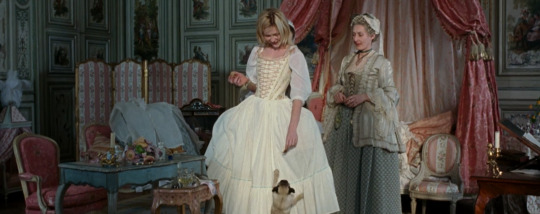
Marie travels to France and relinquishes all her connections to her home country, including her pet pug. She meets Louis XVI, and they are married at once. They are encouraged to produce an heir to the throne, but the next day, it is reported that “nothing happened” on the wedding night.
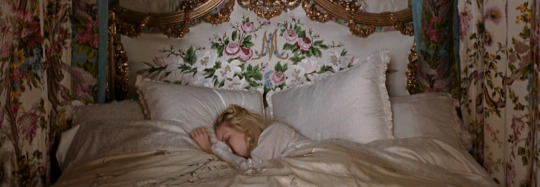
As the film passes, Marie concludes life at the court of Versailles stiffening. Her husband’s courtiers disdain her as a foreigner, blaming her for not producing an heir, although the fault lands within her husband, as the marriage remains unconsummated for an inordinate amount of time.
The French court continues to gossip about Marie, as she constantly ignores ritualistic formality among them. Marie also refuses to meet or even speak to Jeanne Becu, Comtesse du Barry, the King’s mistress.
As the years pass, Marie Theresa continues to write her daughter, giving advice on how to seduce Louis XVI. Marie’s attempts to consummate with her husband remained unfulfilled, and the marriage remains childless, while France remains heirless.
Marie spends most of her time buying extravagant clothes, gambling, and partying. After a masquerade ball attended by both Marie and Louis, they return to find that the King was dying of smallpox. He dies, and Louis, 19 is crowned King of France, while Marie, 18, is crowned Queen.

Marie’s brother, Joseph II of the Holy Roman Empire comes to visit and counsels her against her lavish spending and partying, which she ignores. He also meets with Louis at the Royal Zoo and explains to him how the “mechanics” of sexual intercourse work in terms of “key making,” as locksmithing keys are his favorite hobby.
After the King and Marie have sex for the first time, ultimately consummating their marriage. Nine months later, Marie gives birth to a daughter, Princess Marie Therese Charlotte of France. As the child matures, Marie begins to spend much of her time at the Petit Trianon, a small chateau in the park of Versailles. She later begins an affair with Axel Fersen, who she met at the masquerade ball.

France’s financial crisis worsens, and the food storages and riots increase, and by this point, her public image has completely deteriorated. Due to her lavish spending and lifestyle, she has earned herself the name “Madame Deficit.”

As she matures, she focuses less on her lavish lifestyle and more on her family, making financial adjustments as needed. A year after her mother’s death, she gave birth to a son, Louis-Joseph, the Dauphin of France. She also gives birth to another son, Louis Charles, and another daughter, Princess Sophie, who dies a month after her first birthday.

As the French Revolution erupts and many storm Versailles, the royal family resolves to stay in France, which ultimately leads to their inevitable downfall in history. Rioting Parisians force the family to leave Versailles for Paris, and the film ends with the royal family’s transfer to Tuileries. The last image is a shot of Marie’s bedroom in Versailles in pieces and destroyed by angry rioters.

There’s something just so beautiful about Sofia Coppola’s films. I think Coppola does a fantastic job of humanizing historical figures in the film, whether they deserve it or not. Although, I will say, Marie Antionette plays more like a music video than I believe a historical film, and I understand the historical criticisms of the film, due to its absence of political context.
I think the film is the world in Marie Antionette’s perspective, as she is very naive politically, socially, and culturally. Intermixing the Bow Wow Wow’s “I Want Candy” while showcasing a montage of cakes, champagne, and shoes, describe what Marie Antoinette saw royalty as, nothing less than a shopping spree, rather than leading the people of France out of ruin.

There’s something to be said about the little dialogue in Coppola’s films. I’ve noticed this in certain films aside from Marie Antoinette, like in The Virgin Suicides or The Beguiled. I think she does this completely on purpose. In these films, the setting tells a story more than the dialogue does. The beauty and lavishness, but also the mystery behind all of it, is more important than the characters' interaction with each other. In Marie Antionette in particular, we see many interactions between characters, but they are non-confrontational rather than belligerent, with actions such as slide-glances or whispers. Coppola does not allow dialogue to interfere with the setting, or event storyline for that matter, which I think as a director, must be very difficult to do.

There’s also something to be said about the subtle changes in coloring in Coppola’s films. I noticed this in The Virgin Suicides as well. After a dramatic event in her films, the coloring deteriorates into a blue-green tint. In Marie Antoinette, this is noticeable when she and the King fall out of favor with the people of France.
The film in itself masks the problems proceeding to the French Revolution. The clothes, the parties, the affairs, all mask the real issues retaining to the backbone of the French Revolution. In the modern-day soundtrack, even one could argue the so-called “humanistic” view of Marie Antionette would be considered hiding behind the truth.
Marie Antoinette is fun, lively, but I would argue, not historically accurate. Even Coppola herself stated that she was interested in showing “the real human behind the myths.” Which, in perspective, does exactly that. It showcases Marie Antoinette’s spirit, and her naivety which leads to her inevitable downfall, and the inevitable downfall of France’s royal empire.
So, is Coppola’s version of history correct? Should we sympathize with a young Marie Antionette? Or was the world done with powerful monarchs?
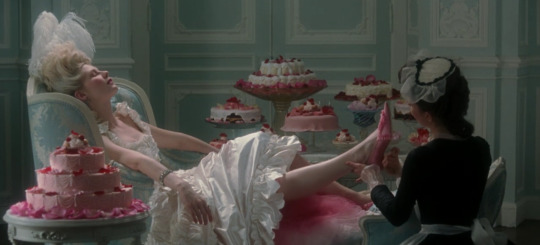
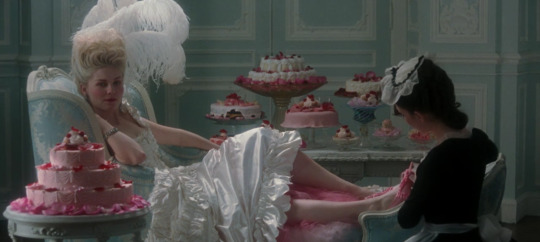
#marie antoinette#drama#sofia coppola#sofia coppola films#sofia coppola movie review#film#2000s films#filmreview#female directed movies#female filmmakers#movies#moviereview#americanmovies#period drama#2000s movies#2006#french revolution#american revolution#timepiece#time period#time period film
56 notes
·
View notes
Text
FYI I had a question about not liking horror but wanting to watch The Haunting of Hill House and The Haunting of Bly Manor & I thought I'd just post some of my thoughts here as well in case anyone's interested or on the fence
First of all, The Haunting of Bly Manor was a lot less scary to watch for me than The Haunting of Hill House. If you're hesitant about watching them because of the horror - I would recommend going with Bly Manor first then see if you think you can deal with Hill House (even though in my opinion Hill House is the superior story)
That's not to say there's no horror in Bly Manor, but that it's quite toned down compared to Hill House in my opinion. They are completely separate stories so it doesn't matter what order you watch them in, even though Hill House came out first
Because they are horror shows, there will be a lot of creepiness and the occasional jump-scare. However, because freaking you out isn't really the point of the shows (like it is with most traditional horror films) in terms of jump-scares they're pretty predictable. Things will start getting creepy and ramp up over a minute or two. The first time round I found it quite easy to look away when that happened so as to avoid any potential jump-scares. But when watching Hill House, there are a couple of jump-scares that I did not see coming at all. To sum it up - you will spend a lot more time creeped out than pee-your-pants-jump-scared
In general, nothing is too intense for the first couple of episodes of each series so you can watch the first episode or two to see if you get really into it or not before the worst of the horror elements come into play
Someone described Hill House to me as a "intense family drama with some ghosts occasionally woven into it" which I think is so accurate for both series tbh. The focus is the drama of the relationships of these people, not on making you pee your pants - unlike a true horror
I think it's fair to say that "The Haunting of x" refers not only to the ghouls but also how the characters are "haunted" (non-paranormally) by issues or other things in their lives - there's a lot of drama which is nice for a horror
In my opinion, even if you don't like horror, they're worth enduring for the stories they tell. I cry my eyes out at the end of both series every single time. You will cry your eyes out but really satisfied with the endings
The soundtracks are fucking fantastic. I actually own them on vinyl. The composer did a 10/10 job
It's very satisfying to watch because every single little thread or piece of information means something, even if you don't realise what it is until the end. Every thread is tied together nicely at the end and nothing is left in the wind. If you like the 'aha!' moments of piecing clues together this is for you. Someone has also said in a discussion about the series that "not a single piece of dialogue was wasted in the entire series". Preach. They are incredibly well-written
The cinematography is gorgeous. In one episode in Hill House there's an episode with barely any cuts between scenes in it & one-shot scenes that last like 10 - 20 minutes which is INSANE. It is a masterclass in film-making and took them forever to shoot. If I was a film teacher I would show that episode to my class and be like 'this is the gold standard you have to beat in your careers'
There's also lots of easter eggs in the background of scenes if that's your thing
If you like lesbian love stories, Bly Manor is for you
There's a cool theory that the five (now grown-up) children in Hill House each represent one of the five stages of grief in descending order from oldest to youngest. I love this theory and am behind it 100%
5 notes
·
View notes
Text
watch this! – the bad kids
I am in full rambling mode, so today I’ll have my shot at brainwashing you into watching The Bad Kids (隐秘的角落), with no spoilers past what any online summary would tell you. Clear your mind and prepare for my nonsensical advocacy of this baby:
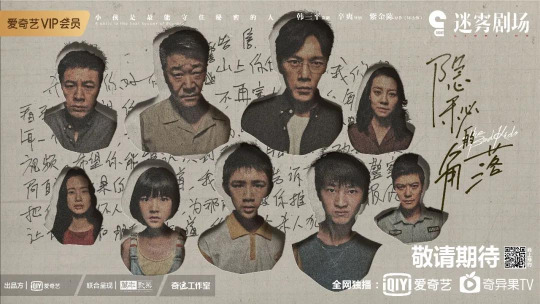
What is it?
12-episode Chinese web series that’s been all the rage in China for the past couple of weeks, and for good reason
As of this post, the show has an 8.9/10 score on rating site Douban, which is shockingly high for a domestic drama (most Chinese dramas are heavily scrutinized on that website due to a user base that tends to be very critical). I typically ignore hype trains, but this is one that I’m truly on board with and I’m waiting for this to gain more overseas recognition
Discreet psychological/suspense madness that doesn’t scare you while you’re in front of your screen, but will creep up on you once the sun sets (unless that’s just for me; I’m unreasonably scared of a lot of things)
Summary: three children go out to play, accidentally record a guy committing murder, and then—like all normal children would—decide that they can use the incident to blackmail him for money
What could possibly go wrong in that situation
Why watch?
Plot – in terms of execution, this gives off a similar energy to Japanese anime of the mystery genre (if you’re familiar with it, Erased was what came to mind) in that it frequently favors usage of dialogue, cinematography, and mood-setting over action: hence, the “psychological” aspect. There’s so much more dimension to the plot than solely the murder, which merely serves as a jumping-off point. Figuring out how every individual piece of the plot is going to come together is exhilarating and insanity-inducing. This is me at any given moment while watching (and ngl, this is my current state as I write this, shortly after having finished the series):
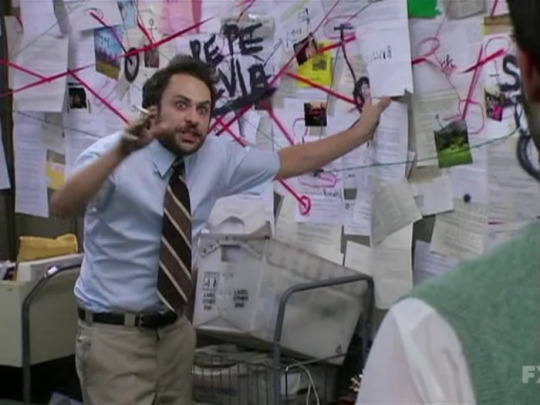
Thick® acting chops – when the summary says “three children,” it means children. This isn’t like one of those high school dramas where a buff 25-year-old actor with clear skin is trying and failing to pass as a teenager; the three kids are played by child actors who are legitimately around the age of their characters (the youngest is ten years old in real life. That’s so young that my “old” self can barely comprehend why she exists). Their roles are crazily demanding, yet you don’t ever catch them faltering.
The guy that has the role of the murderer is so good. This character was designed to have you second-guess every positive and negative judgment that you make about him; and this man holds that precarious balance between unassuming and psychopathic. If he weren’t a murderer, I might even venture to say that he’s attractive. I said “if,” okay? Don’t give me that look.
This is an out-of-drama-context photo, but LOOK HOW CUTE THIS MURDERER AND HIS THREE BLACKMAILERS ARE:
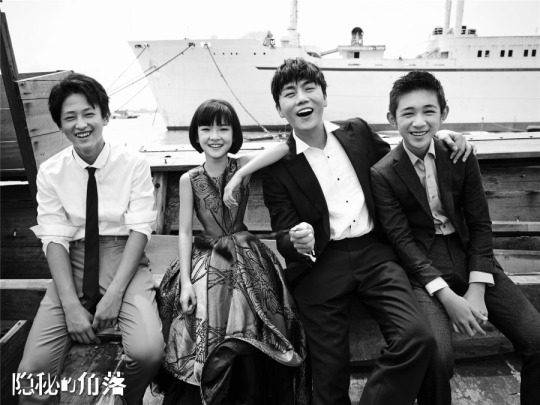
Dark elements – not accurate to call it “horror,” seeing as the primary goal of the drama is not to have you cowering behind your blanket. It also doesn’t aim to be overtly creepy. Rather, it’s capable of making you feel unsettled in your subconscious. It’s the general feeling of uncertainty that gnaws away at you: there are a crapload of implied truths whose lack of 100% confirmation leaves you in mental limbo.
This may not be traditional horror, but the opening animation gives me the heebie-jeebies and I want it to be buried twenty feet underground in a lead casket that’s been sealed with Gorilla Glue. I would include a screenshot of it, but that would mean that I’d have to watch/hear it again, and I absolutely refuse to do that. From an artistic perspective, this is definitely the most creative and deliberate opening for a drama I’ve ever watched.
The “soundtrack” that plays during episodes is freaking terrifying. I’m referring not to the actual songs (which are great, too), but to the interjecting tracks that are made out of...unusual noises? One that is stuck to the forefront of my mind is this thing where they use a heartbeat as the beat (ahaha) for other sounds and it’s absolutely unnerving because the bass of it is so boosted that it feels like your own pulse is being magnified. BIG NOPE.
The relationships – key moments are built around human interactions. Most of the relationships often feel as if the parties involved are estranged from one another, especially when it comes to those who should be closest – the children with one another, one of the boys and his parents, etc.
The title is “The Bad Kids,” but the show tackles it almost as a social commentary. The children are infuriatingly innocent in how they choose to go about blackmailing the murderer: they still act like children, even when making the conscious decision to do a sketchy thing. Yet as each episode passes and they confront more and more of their personal issues, you as the viewer are also forced to confront the fact that kids are shaped by the people around them – should the adults around them be inept or irresponsible, then the ones who learn that twisted behavior are the kids. So, do with that what you will. (Noteworthy is how the translated title is a direct translation of the novel that this show is adapted from, 坏孩子 by Zi Jinchen. The Chinese name of the show, 隐秘的角落, translates to “Hidden Corner.” This makes sense in context, but I wouldn’t conclude that one title is totally better at encompassing the show than the other.)
Front and center is the relationship between the kids and the murderer. I really, really liked how this was executed. There’s a peculiar amount of entertainment value in watching these scrawny children and a grown adult play an extended game of chicken – it’s in both sides’ interests to keep the other side’s secrets, but they also have to simultaneously outplay one another at every moment. Honestly, sometimes it’s a nice source of hilarity. What I liked most is that each individual child’s dynamic with the murderer is unique from those of the other children.
It’s short, in exactly the way that this post is not – 12 episodes leave no room for nonsense. If you despise plot filler or side plots, there’s no need to worry because there’s none of that here. I feel like there could have been a couple more episodes to break down each character more, but chances are that that’s just my unreasonable obsession with character development talking. I’m glad that there’s a drama director/crew out there that recognizes the value in making the show exactly as long as it needs to be (ahem...I’m looking at those dramas that shamelessly have over 50 episodes with 30 of those episodes being garbage).
Into the deep – I’ll probably tackle watching this a second time and maybe a third to scrutinize every scene. This show is short, but that ensures that every episode is packed with hints, symbols, and questions which are impossible to understand in a single moment. Sigh. I’m scared.
TL;DR – The Bad Kids is thoughtful, atmospheric, and keeps you on your toes until the very end. Here’s to hoping that this becomes the standard for future dramas. Aaaand I’ll see you later. Gonna go rewatch. And get scared again.
310 notes
·
View notes
Note
Hello darl!!! As a loyal follower of your wonderful account I was so excited to here that you finally got to see LP!!!
Here in Australia we have to wait for ages so I’m glad you got to see it early!!
I’m hoping to book tickets soon but I am wondering if there’s anything I should keep in mind going into the film in terms of PTAs directing and stuff? Also because your so good at analysing film are you thinking watching it again in cinemas soon or are you gonna sit and think on it a bit?
Anyway hope your well x
Ahhh thank you so much for the lovely message!! I hope you get to see it as soon as possible!
I'm definitely going to see it in theaters again — I already have a ticket for the opening showing at my local theater on Christmas Eve! Watching it at the advanced screening on Saturday, I was almost too excited by the whole experience to pay close attention to cinematography particulars lol. It was just overwhelming to be finally seeing it!! But in the last few days I've been thinking back on scenes and certain aspects and I'm looking forward to seeing it again with those in mind.
As for PTA's style and those technical things... I guess I'd keep an eye out for his long shots. He's known for those longer tracking shots and I'm thinking of one in particular from LP that's just gorgeous. It's a really pretty film to look at, from the colors to the editing and the close-ups. To me, it feels like Paul's most uninhibited, unguarded film, just so joyful. And so much running.
Also, the dialogue — I just read in an interview yesterday Paul said there were some places where he scrapped the dialogue he'd written and had these unscripted moments of silence between the characters instead. I loved those scenes and I can't wait to see them again now that I know that was a really conscious, on-set choice.
I'd also recommend listening to the soundtrack beforehand if that's something you're interested in — the music is fantastic and, having listened to the soundtrack religiously in the month leading up to the movie, each needle drop brought the biggest smile to my face :)
As you can tell I've already thought on it quite a bit lol! I typically enjoy films more on a second watch anyway, so I'm really excited for another round in a few weeks. Once it's been out for a while and the risk of spoilers goes down, I might write a longer, Monday Philm-esque review with more details. Please let me know what you think of the film as soon as you can see it!
1 note
·
View note
Text
The Princess Bride: Facets of Film
Movie-making is a tough and complicated business. Once you have a studio sold on your pitch and script, there’s changes to be made, casting to be done, lighting choices, changes to the script, sets to find, costumes to make, special effects to prepare, more changes to the script, camera set-up, studio supervision, and then, possibly, more changes to the script.
In a business populated by that many people all working on the same project, every film is a minor miracle that it got made at all.
As you may have gathered, making a movie is a huge undertaking. There’s a lot that goes into it: cameras, music, sets, special effects, costumes, and more, managed by a lot of people who are very good at their jobs. All of these little elements, which don’t seem that important on their own, all go into piecing together a coherent narrative in a way that makes sense, and looks good, to an audience.
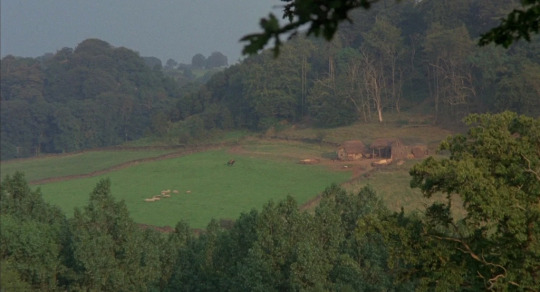
These elements, cinematography, lighting, costuming, special effects, etc., are the elements that can catch the attention of an audience, taking a ‘good’ film, and turning it into a ‘great’ film, thanks to the powers of movie magic.
See, movies are a very visual medium. You can have a good story and characters in a book, but you have to imagine what it looks like as it moves along. In a film, you have to watch what someone else made up. This can be either an advantage or a disadvantage, and the difference is made entirely thanks to production design. These ‘facets of film’, the trimmings that make a movie a movie, are vital to visual storytelling, enabling casual movie-goers to interpret what the framing of some scenes is trying to tell them.
Most audience members subconsciously internalize things like thematic costume changes, or a musical cue, without putting thought into figuring out what exactly was getting that point across. The point is, these ‘facets of film’ are not only for filmmakers or movie critics to think about and fawn over: This storytelling shorthand is an important tool that gives the audience all of the information they need to have, without spelling it all out in dialogue. Westley as the Dread Pirate Roberts wears all black as visual shorthand that he is dangerous, Humperdinck wears fine clothes to establish status and style, even Buttercup, whose clothing is plain when she is with Westley and uncomfortably bedecked when she is with Humperdinck, is dressed in a way that conveys something to the audience.
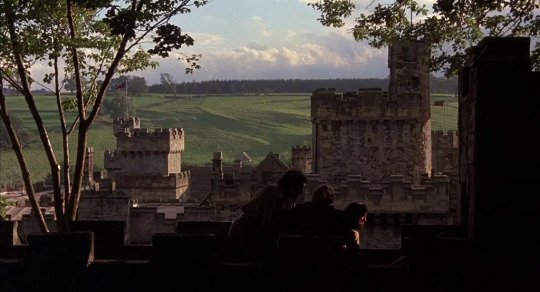
In other words, it’s very useful.
A good director knows to use these aspects of ‘storytelling shorthand’ well, as opposed to competently. Too often, directors can decide to focus the production crew, and the movie itself, in the wrong place, attempting to garner praise for production design rather than substance.
There’s nothing wrong with looking good and being a well-done movie from a technical standpoint, but the balance is necessary. A good director knows that visual storytelling accentuates its story, rather than overshadows it, intended to get the plot across in the most effective way possible, focusing on what is important: the story and characters.
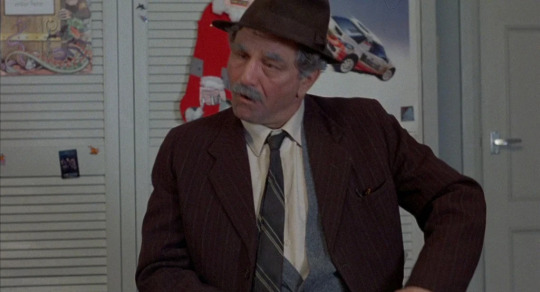
Much like The Princess Bride does.
The Princess Bride isn’t exactly a blockbuster-style film. There isn’t a huge budget spent on special effects or huge setpieces, but what is in there is done so with a remarkable touch. Every inch of this film is designed to look like it takes place in a fairy-tale story, not exactly ‘real locations’, but looking like pictures you’d find in a story book. That extends to the camerawork.
Camerawork is a pretty big deal in film for obvious reasons.

The way a director uses a camera can tell the audience a lot, using some shots to emphasize different emotions, or even to get across different feelings to the audience. Filmmakers use editing of these shots together to tell the story, to move the audience’s line of vision so that it is always centered on the action while also helping to set the mood or leave a visual impression on the audience.
So, does The Princess Bride manage that?
Most of the camerawork in The Princess Bride is fairly standard stuff, wide-shots for action, close-ups for dialogue or emotion, establishing shots for a new location, etc. However, there are a handful of tricks that are notable: natural lighting used in the shots to make them feel open, spacious, and real, contrasting with artificial levels of darkness in the Fire Swamp, or the upwards-facing shot of Fezzik’s impersonation of the Dread Pirate Roberts, seeming to increase his size and formidability. Other shots, like the coming-into-focus of Westley rising to point his sword at Humperdinck, are equally effective, in uses of ‘subjective camera’. There are other, more traditional examples: shots of Buttercup’s abduction from above to make her seem even smaller, and establishing ‘relationship’ shots of people on the same level in the same frame, such as the sunset-lit kiss sequences bookending the film. Even the editing, while being mostly standard, is given a few moments to shine, such as when the Grandfather is trying to find his place in the story after interrupting to make sure the Grandson isn’t frightened by the Shrieking Eels.
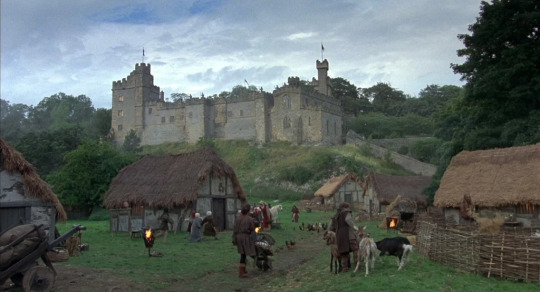
Still, overall, it’s a fairly simple film in terms of visual style. The cinematography is aimed at one goal: creating a charming, warm, comforting atmosphere that translates well and correctly conveys the mood of the audience.
This is even more so aided by the film’s score.
It’s fairly obvious that a movie’s soundtrack is integral to its success: a good movie can be elevated to iconic levels thanks to a good score (i.e. Jaws, Psycho, Star Wars, etc.). In other cases, music can be passable, serviceable, without being bad or fantastic.

In the case of The Princess Bride, the score is….interesting, to say the least. Instead of a traditional ‘fantasy’ score, the soundtrack was composed by Mark Knopfler, the front guitarist for the band Dire Straits (Money for Nothing, Walk of Life), using synthesizers and acoustic guitars to get the sound of the film. The score, especially both the instrumental and vocal covers of ‘Storybook Love’ (sung by Willy DeVille) is memorable, overall, if nothing to write home about. The soundtrack does what it is intended to do: set the scene, notably in the scene ‘The Chatty Duelists’, where Inigo and Westley fight to the stings of the music. The music overall accentuates the grand, sweeping visuals as well as the tense, exciting sequences, keeping the audience in the story very well.
Speaking of grand, sweeping visuals:
The sets of The Princess Bride overall aren’t really ‘sets’ at all. The ‘Cliffs of Insanity’ were in actuality the Cliffs of Moher in Ireland, and even Humperdinck’s castle was actually a real medieval manor house. From Miracle Max’s shack to the Fire Swamp, to Rugen’s torture chamber, the rest of the settings of The Princess Bride do their job very well, creating a fantastical atmosphere that serves the story admirably. These aren’t the vivid, magical sets of The Wizard of Oz, designed to create an atmosphere of dreamlike fantasy, rather, the settings of The Princess Bride are more intended to create a feeling of Magical Realism, that it is a storybook, but that the locations look and feel familiar and realistic. This is helped somewhat by the fact that the film itself doesn’t rely on special effects much at all: aside from the Shrieking Eels and the (rather unrealistic looking) ROUSes (saved by the storybook feel of the entire film), there aren’t any real fantasy-specific special effects that other films might utilize.

There’s more to an immersive movie experience than sets, costumes and music, though. In the end, no matter how impressive, the special effects, sets and costumes don’t really mean anything if the characters aren’t believable. The movie really rests on the shoulders of the performers: it’s on the actors to try to sell not only their surroundings and story, but the characters themselves, everything from the personality to the emotions.
In the case of The Princess Bride?
Cary Elwes’s performance as Westley is lighthearted, emotional, and extremely sincere. He’s charismatic, charming, and makes you believe that he’s exactly as skilled as the story needs him to be. He also manages to convince an entire audience of the genuine love he has for Buttercup, and is distinct as both his Westley persona and his ‘Dread Pirate Roberts’ persona. In other words, he’s perfect.
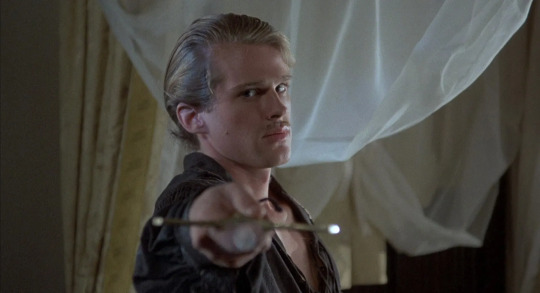
Cary Elwes balances the ‘indestructibility’ that most protagonists seem to possess, seemingly in control of dire situations, as well as the vulnerability necessary for an audience’s sympathy and concern for his well-being, for his goal. In other words, he manages to pull off a character that seems designed for an earlier time, updating it with a sense of humor and charm that perfectly suits the rest of the film.
Robin Wright is similarly well-suited for Buttercup, as she’s written. I’ve discussed elsewhere the potential problems presented by Buttercup’s rather uninteresting personality and role in the story, but Buttercup’s Defrosting Ice Queen tendencies are very well conveyed, especially early on. As I mentioned in other articles, her chemistry with Elwes makes the romance element of the film convincing in the few scenes they have together. She does a good job with the material given to her, it’s just a shame that there wasn’t more for her to do.
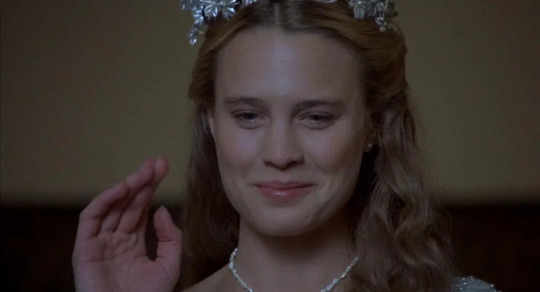
On the other hand, Mandy Patinkin as Inigo Montoya, despite the unconvincing accent, is inspired, with Patinkin bringing both warm humor and ice-cold vengeance and formidability to the role. Both he and Elwes brought great physicality to their sword-fight sequences, training hard in order to do as much of their own fighting as possible, and it shows in the performances in the final product. Inigo’s inner conflict is showcased well, with Patinkin providing both the comedic highlights as well as the intense emotional ones, especially his final duel with Rugen. It is Inigo’s lines which tend to be the most memorable, owing a lot to Patinkin’s iconic delivery.

All three of the main trio play their parts perfectly, but they are only the chief standouts in an entire film full of them.
André René Roussimoff (better known as André the Giant) despite not being an actor in the same vein as the rest of the cast, is iconic as Fezzik. The instant likeability present in the performance carries strongly throughout the film, with his own fair share of memorable dialogue (which, granted, nearly every member in the cast has). His physicality isn’t really what makes him such a distinct part of the cast, rather, it’s the character’s heart and humor that makes this performance such an integral part to the film at large.

Similarly (though in the opposite direction), Wallace Shawn is a wonderful choice for Vizzini, his distinct voice and mannerisms giving the character plenty of funny dialogue without entirely removing the threat he poses. Despite not having a lot of screen time, Shawn manages to make the role iconic instantly, with inflections that make the word ‘inconceivable’ memorable to this day.

Chris Sarandon is perfectly cast as Prince Humperdinck, playing arrogance and control that all come crashing down in the final scene. Humperdinck is all bark and no bite, appearing confident and competent until he is met by someone who might pose a challenge. He’s conniving, cold, and disinterested in anything other than his war, making it especially rewarding when he is defeated.
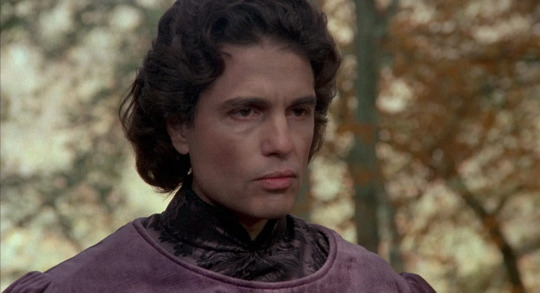
Similarly, Christopher Guest plays Count Rugen with a sophisticated coolness, never really invested in what’s going on or terribly worried about it until that ‘little Spanish brat’ comes for revenge, very well equipped to deliver it. He plays the final duel scene notably with an increased losing of composure, cluing the audience in to his inevitable demise for the sake of vengeance.

The other characters perfectly hit their mark as well: Billy Crystal and Carol Kane are a comedic team to be reckoned with as Miracle Max and Valerie, with other special standouts including Peter Cook as the Impressive Clergymen (a scene stealer with only one appearance), and Peter Falk and Fred Savage as the Grandfather and the Grandson, respectively.
Every character in The Princess Bride comes across exactly as they should: as characters in a fairytale, fondly looked back on from a place of adulthood. Each performance is perfectly suited to each character and the type of movie that they are in, with every performance hitting a mix of sincerity and drollness. These performances aren’t necessarily subtle, but they aren’t supposed to be. They are heroes and villains, giants and master swordsmen and princesses, acting out a fairy-tale that knows exactly what it is, with tonal consistency that never seeks to outdo the material the actors are given. These performances are the final piece to cementing this film as a true classic, bringing entertainment to people decades after it’s first release.
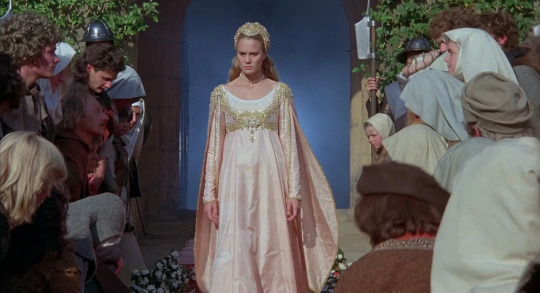
In short, the filmmakers of The Princess Bride knew what they were doing. Everything from the performances to the camerawork gets across every emotion and aspect of the story instantly, with the sets and costumes working to explain simply what’s going on as quickly as possible. It’s a storybook set to film, both comforting and exciting, and the ending feels right, no matter how many times we revisit it.
The Princess Bride has long been considered a cult classic, a hidden gem that was looked over by a public who never really knew it was there in the first place. Even if it never reaches the high peaks of fame as other fantasy classics, it may not be a stretch to hail it as one of the greatest fantasy films (or films in general) ever made, through simple (but not simplistic) substance, if not bombastic style.
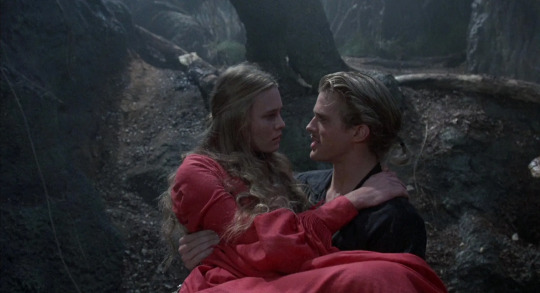
Of course, no movie comes around accidently. There had to be some work done behind the scenes for this film to have come about.
Join me next time as we discuss the Facets of Filmmaking: the Behind the Scenes of The Princess Bride.
Thank you guys so much for reading! If you have something you’d like to add or say, don’t forget that the ask box is always open! I hope to see you all in the next article.
#The Princess Bride#The Princess Bride 1987#1987#80s#Adventure#Comedy#Fantasy#Family#Romance#PG#Cary Elwes#Robin Wright#Mandy Patinkin#Chris Sarandon#Christopher Guest#Wallace Shawn#André the Giant#Peter Falk#Fred Savage#Rob Reiner#Film#Movies
11 notes
·
View notes
Text
The DC Extended Universe, Ranked Best to Worst.
1. Wonder Woman Directed by Patty Jenkins
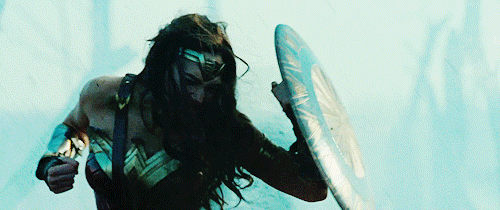
Wonder Woman might be the only good movie that DC has made. Patty Jenkins really hits the nail on the head and perfectly captures the voice of the character. For a character so old and so iconic, there are many versions of Diana’s story, but Patty Jenkins really manages to deliver a definitive version. Gal Gadot, like Christopher Reeve or Chadwick Boseman before her, is perfectly cast in a role that is so much more than just a movie character. Diana is as strong as she is compassionate. The character flaws she needs to overcome is her own naivete, rather than the misguided angst so many of DC’s other characters grapple with. While other action sequences in the franchise have been overly cluttered, Wonder Woman’s cinematography offers some of the slickest, most iconic action scenes in the genre. It’s an altogether incredible achievement and a milestone for cinema in general.
2. Wonder Woman 1984 Directed by Patty Jenkins

The greatest fault I could find with this movie is that it didn’t lean into the 80s setting more. It does tread the line of a rather schmaltzy central plot, but solid performances from cast members like Pedro Pascal make it believable. It’s an absolute joy to see Gadot and Pine return to their roles, and an even greater joy to see ther choice of outfits for every scene. Solid. While Kristen Wiig is expectedly brilliant like with everything she does, she’s handling a character arc that seems derivative and outdated. Like it’s predecessor, WW84 showcases some pretty stellar action sequences, with Jenkins once again showing a knowing eye for big, impressive set pieces paired with frenetically paced fight sequences.
3. Aquaman Directed by James Wan
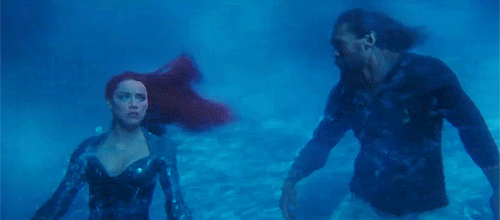
After the convoluted mess of ensemble films like Suicide Squad and Justice League, and even some of Marvel’s recent fare, it was refreshing to see a more traditional origin story. This was ultimately what drew my interest to superheroes in general, and while this film doesn’t have the same elegance of a Superman (1978) or Batman Begins, it’s an origin story that modern audiences can sign on for easily. It’s strongest scenes are in the lore-expanding quest that Arthur and Mera go on, simultaneoulsy a National Treasure-esque adventure and a showcase for solid chemistry between Jason Momoa and Amber Heard. And while Ocean Master does seem like an exaggerated villain at times, It’s Patrick Wilson’s solid performance that manages to sell it and make him arguably the best villain DC’s had.
4. Shazam! Directed by David F. Sandberg

Obviously, an inordinate amount of fun. Shazam doesn’t try and be something it’s not. Ultimately, more than any other superhero film, Shazam understands that this genre was always intended for children. And while at times the plot might seem thin or the conflict inconsequential, Shazam never loses sight of it’s heart. A capable cast of child actors make this believable, and subverting the genre tropes makes the film charming and witty. While it seems overly simplistic in terms of it’s storytelling, in DC’s world of confusing plots, this is a welcome change.
5. Man of Steel Directed by Zack Snyder
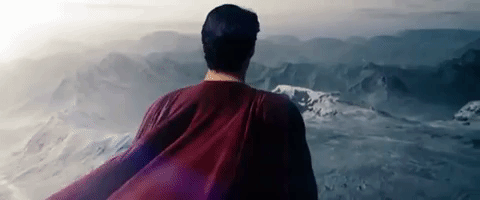
Perhaps the strangest portrayal of Superman to date, Zack Snyder honed in on the mythos of the character and what makes him “super” Unfortunately, it seems to completely ignore what makes him a “man”. We’re left with a wholly alien representation of the character- a gross misunderstanding of who Superman is supposed to be. Horrible character choices for both Jor-El and Jonathan Kent leave Clark a shell of the hero he’s supposed to be. We’re left with a character more willing to grapple with moral dilemmas and his own inner angst than actually step up and do the right thing. Henry Cavill has an undeniably affective presence, and he certainly feels right for the role, but he’s never given a chance to actually play the part. Aesthetically pleasing to look at, and generally quite entertaining, it’s unfortunately the way Man of Steel fails its character that makes it so unbearable.
6. Birds of Prey (And the rest of the title) Directed by Cathy Yan

I mean, this is basically just a Harley Quinn movie with some other random characters thrown in. Considering Margot Robbie wrote the film, I find it particularly bothersome that the most work she does for character development is for her own character. We see brief intriguing glimpses of some of the other Birds and unfortunately never get more than a taste. Some of the fight scenes are handling quite capably, trading in the more grittier feel of the standard DC fare for more amusing prop and set work. However, much like Suicide Squad before it, I feel like the movie suffers from “soundtrack vomit”- a post Guardians of the Galaxy symptom in which a movie tries to assemble catchy songs and them slot them into the edit with no real motivation.
7. Batman v Superman: Dawn of Justice Directed by Zack Snyder
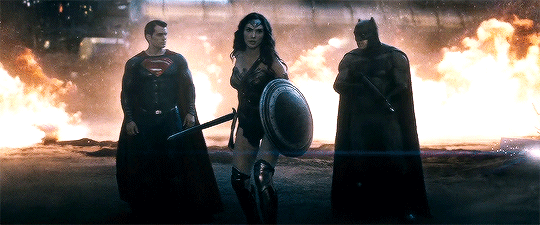
An absolute misfire from DC in a sad attempt to make themselves relevant amidst Marvel’s runaway success. A focal point in the movie is the collateral damage caused by Superman in Man of Steel. And apparently the best way for the movie to deliberate on this is by exhibiting even more collateral damage. Showcasing the conflict between these two iconic characters seems like a good idea on paper, and it’s certainly been captivating in past comics. But the movie seems to devolve it into nothing more than a bar fight between two dumb jocks. We see Batman get cyber bullied by Lex Luthor, and Superman get coerced by a stupid plot hole. Then they beat each other up like idiots. A movie that spawned a thousand jokes, it’s really only worth watching to make fun of.
8. Joker Directed by Todd Philips
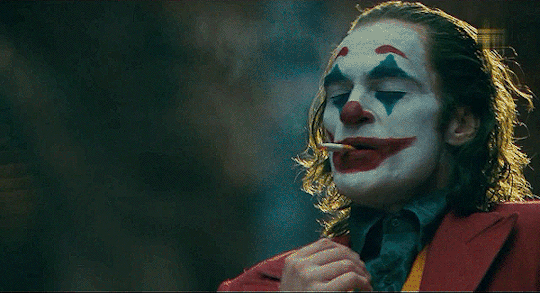
Apparently, this movie isn’t supposed to be counted as part of DC’s Film Universe. But I couldn’t resist the opportunity to remind you what a steaming pile of garbage it is. It would be inaccurate to even call this a movie. It’s really just a desperate actor trying to win an Oscar from an Academy that continues to be woefully out of touch. And an even more pathetic attempt by a incel director to stay relevant. The talented work from it’s cinematographer and composer force me to show some restraint from putting it at the bottom of this list, but rest assured- while there might be films I put below this, there are none I hate more.
9. Justice League Directed by Zack Snyder(?)
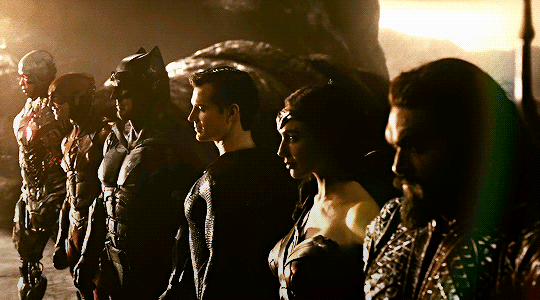
Painful to watch, I went into this movie with the lowest of expectations, and they were somehow not met at all. It feels altogether rushed, poorly constrcuted and boring all at the same time. They forego any need for world building and instead toss us headfirst into a horribly convoluted storyline. They rush through an origin for Cyborg and introduce Aquaman like he’s the douchebag you never invited who shows up to your houseparty. Batman over-compensates for his eye-rolling seriousness in the last movie by being overly witty in this one. And they solve Superman’s death by having a hilarious grave robbing scene that I guess is supposed to be funny but is so ridiculous to watch that it felt more at place in an Adam Sandler movie. And to top it all off, the movie in general is one big eyesore. It’s honestly painful to watch the shoddy CGI that constitutes the main antagonist and the waves of enemies we watch the JL plow through. And while the opening scene I think is supposed to be a last ditch effort for them to make Superman relevant, it would be promising if I could look past his god awful CGI lip.
10. Suicide Squad Directed by David Ayer
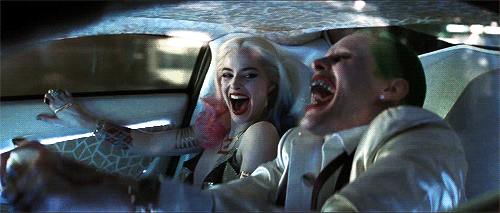
A hilarious comedy where the characters don’t actually have any dialogue and instead just speak in one-liners. A touching romantic drama where the Joker abuses Harley Quinn. A moving character study where Deadshot just wants to be a better father by killing Batman. A thrilling action movie where we hope the heroes can overcome Cara Delevigne’s dumb dancing and blow up the generic pillar of doom she’s summoned in the middle of Gotham. Suicide Squad is all of these things and more- so there’s my rousing endorsement.
#dc#dc movies#dc films#joker#batman#superman#wonder woman#wonder woman 1984#suicide squad#justice league#Snyder cut#man of steel#harley quinn#birds of prey#hanry cavill#gal gadot#ben affleck#batfleck#jason momoa#aquaman#shazam#zachary levi#chris pine#kristen wiig#pedro pascal#orm#ocean master#will smith#margot robbie#mary elizabeth winstead
17 notes
·
View notes
Text
SPOOPY SEASON MOVIE RECOMMENDATIONS : PART II
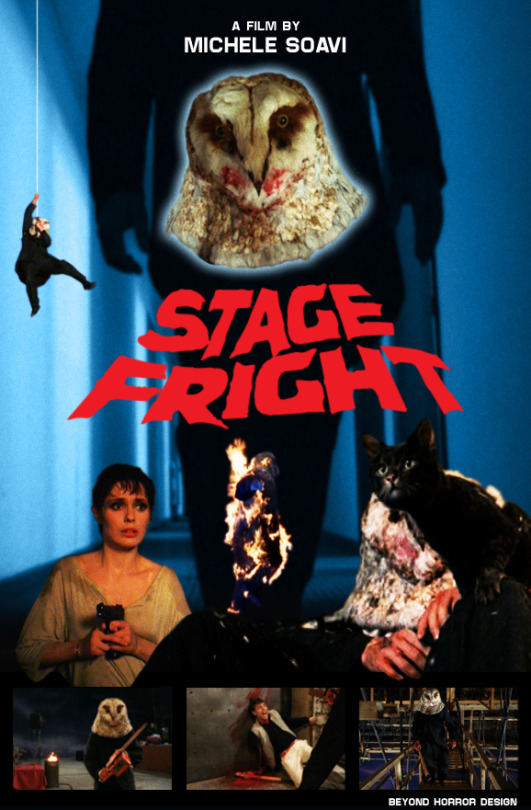
Stage Fright/Deliria/Aquarius (1987)
A giallo-lite movie about a musical troupe rehearsing a play about a fictional serial killer, only to realize there's an actual killer -- an insane former stage actor in an owl mask -- in the deserted theater with them. There are elements of the classic giallo horror as I've mentioned before -- a dreamlike, almost hyperreal quality to everything from the dialogue to the gore -- but this one veers more towards the artsy side. A surprisingly tasteful take on the slasher genre but never afraid to go all bloody disgusting when it needs to. That owl mask is actually pretty good looking, too. Also has some of the best cinematography you've ever seen in a horror film, period. It's an Italian production with American actors though, so expect some weirdly stilted writing/dubbing.
Ever notice how weird it is that giallo horror movies always have totally bopping soundtracks?

The Fly (1986)
Like The Thing, this is another masterpiece I've been waiting to gush about. Yes, much like the former, the practical effects and makeup are gorgeous, gross, and breathtaking, but what sets The Fly apart from other horror movies with great practical effects/makeup/animatronics (like, say, The Void (2017) which is otherwise devoid of any redeeming value) is its near-flawless writing, specifically, the character development and the slow build to the payoff. If we chart the path of the protagonist and the antagonist in this movie, they're actually twisted inversions of each other. The antagonist is a rapey douche and stalker who ends up being the savior for all the wrong reasons, and our protagonist is a genuinely good guy who you empathize and root for, but who succumbs to ego and pride and his good intentions are corrupted as he becomes the titular monster of the movie. I absolutely love The Fly. It accomplishes everything it sets out to do, and it's right up there with The Thing for me in terms of one of the best movies ever made regardless of genre.
Also, FUCKING JEFF "DADDY" GOLDBLUM. That's all the recommendation one could realistically need.
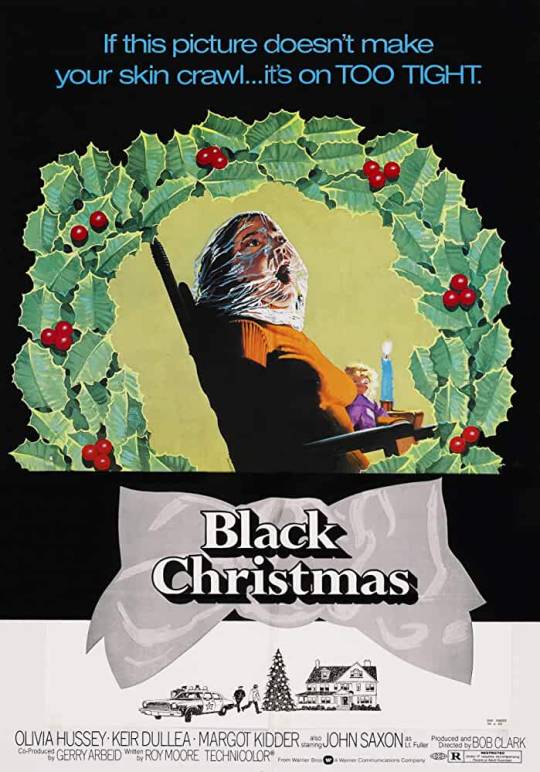
Black Christmas (1974)
Look, as cliched as it is, as overrated as you think it might be, you can't have a list of spooky movies without mentioning the best slasher movie of all time, John Carpenter's Halloween (1978). That one transcends its genre and is one of the most influential movies of all time. Just watch it if you haven't already. I'd much rather talk about Black Christmas (1974) instead, a Canadian film which actually originated the slasher flick genre (yes, you heard that right.) and influenced John Carpenter to make Halloween in the first place. It's an exceptional example of the genre, but more interestingly, it's also unique in every way in the genre. Every character is developed, and every death matters. There's no cookie cutter tropetastic pretty girl who gets murdered in seconds here, no idiotic decisions and random deaths just to add to the body count. Because you empathize with these characters, the psychological embodiment of the killer in the form of disturbing, disgusting phone calls are as scary as the actual physical embodiment of the killer when he shows up. It's such a...dark, depressing, cynical take on Christmas and I hate and love it at the same time. Kind of difficult to find it these days though, but there's an uncensored version floating online (arrr matey 🦜🏴☠️) that's easy enough to find if you're willing to look.
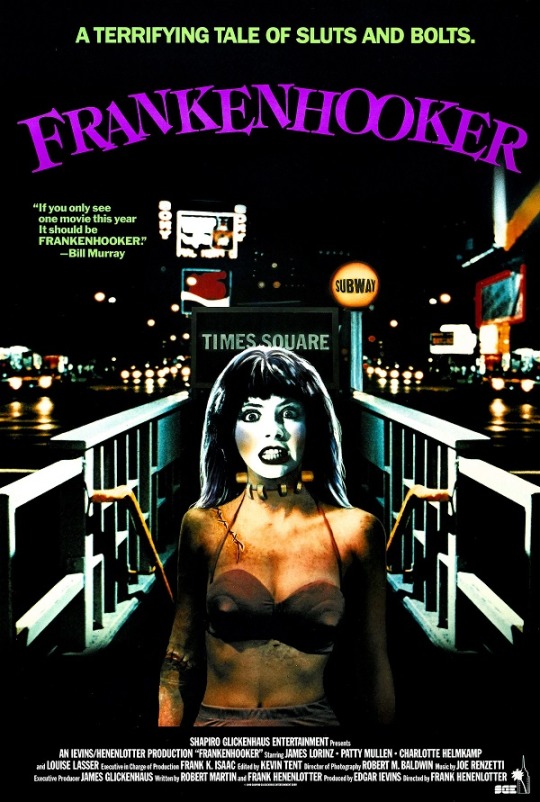
Frankenhooker (1990)
"A terrifying tale of sluts and bolts". One of the most well known 'cult' classics ever. I'm pretty sure anyone from this era has at least heard of this one. A beautiful, creative, whimsical take on the classic Frankenstein story that doesn't let its low budget hold it back from what it wants to accomplish. A saccharine sweet happy relationship comes to a tragic end in a...um. A comically gory lawnmower incident. The guy just can't let go, preserves the girlfriend's head, and works to bring her back to life. He needs female body parts to rebuild her though, and naturally resorts to killing sex workers in seedy alleyways, porn theaters, and peep shows to collect enough of them until...well, that would be spoilers. The editing, pacing, writing are all near-perfect, and honestly, I think it's only the grim premise and black comedy that has held it back from being considered one of the best movies of all time. It's not for everyone, but damn if it isn't an expertly made movie and some of the most fun you'll ever have watching a spoopy thing.

REC (2007)
Fair warning : this Spanish movie is one of those fancy shaky-cam-found-footage films, so if you get motion sick easily you might want to steer clear. That being said, it's one of the best examples of the genre. REC keeps things super simple plot wise -- reporter and cameraman (hence the title) get caught in an apartment, in the middle of some sort of zombie outbreak with a demonic touch -- and is paced perfectly, making for a very enjoyable watch. There's some really cool setpieces throughout, the CGI is so subtle you'll never notice it, and the ending is absolutely shocking. Unfortunately its Hollywood remake (Quarantine) and many sequels could never live up to the original.
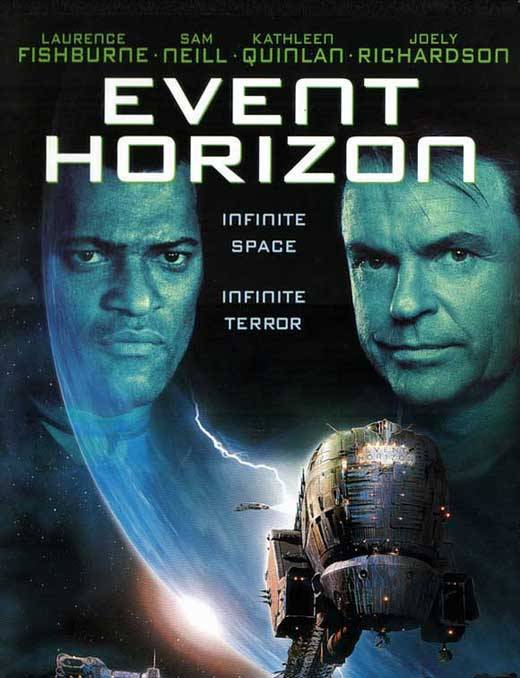
Event Horizon (1997)
You've probably heard of this movie at least once on the internet, and any time you have, the subject has been the infamous goretastic cannibalistic orgy scene and how its original, uncut footage has now been lost. Missing the forest for the trees. That scene was exactly as long as it needed to be (all of five seconds maybe) to drive home the predicament the protagonists were in, and more importantly, even without it, the movie itself is one of the most disturbing, unsettling sci-fi x haunted house x cosmic horror crossovers ever. While it does get predictable in parts, the premise is interesting (no upsetty space alien ripping people apart), every jump scare is earned, every visceral moment is properly built up with suspense, every actor does their job earnestly (Sam Neill is always good, and Lawrence Fishburne plays one of the most pragmatic horror leads ever), and the special effects, makeup, set designs, all hold up to this day. Also, soon to be re-adapted into an Amazon prime miniseries.
21 notes
·
View notes